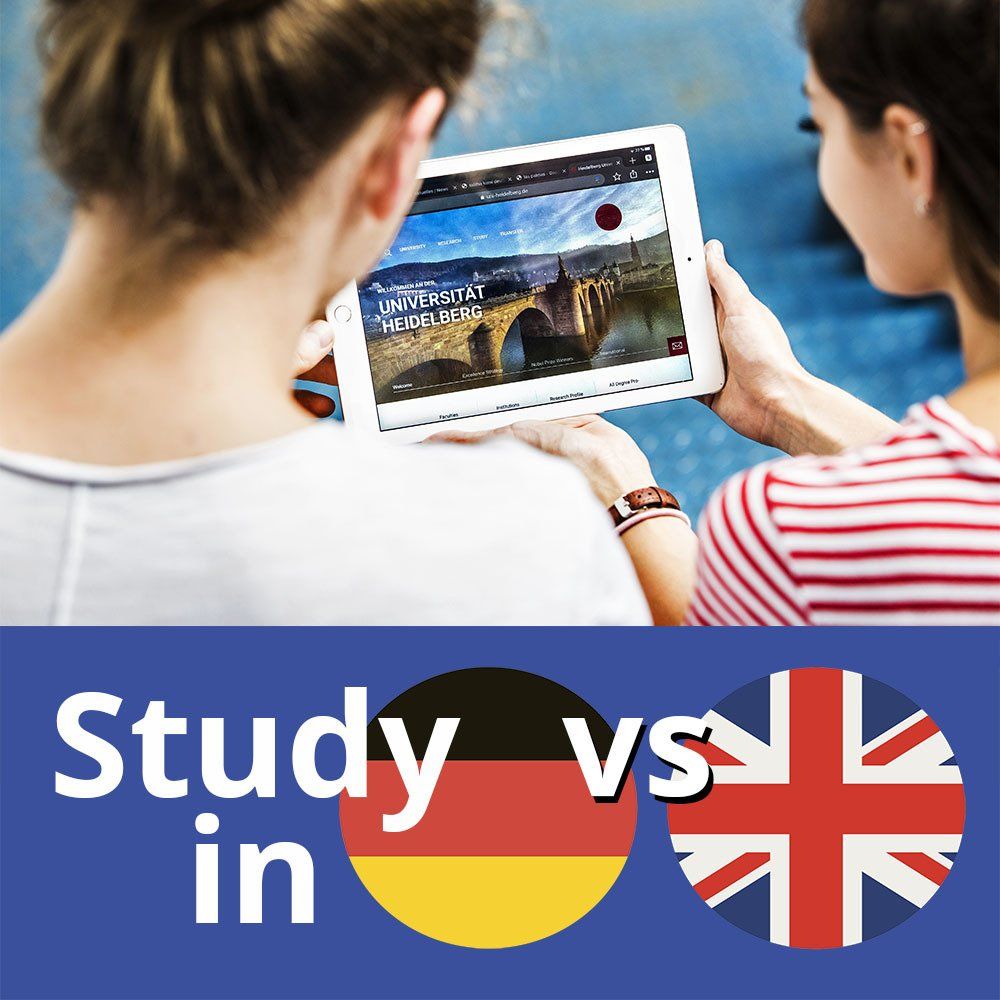Study in Germany: A Gateway to Global Opportunities
Published:

For many families, the dream of studying abroad represents more than just education — it’s an investment in their child’s future. Germany has become one of the world’s top destinations for international students, offering unique advantages that combine
academic excellence, affordability, and life-changing opportunities. With more than 20,000 study programs, over 400 universities, and a growing number of English-
language options, Germany is today the
third most popular study destination worldwide.
Yet what truly sets Germany apart is not just the quality of its education system, but also its openness to the world. German universities prepare students for careers across the globe, and the recognition of German qualifications, including the prestigious Deutsches Internationales Abitur (DIA), opens doors to top universities worldwide.
This article explores why study in Germany is an excellent choice for international students, including those from Indonesia, highlighting its unique benefits and how starting early with a strong foundation at Deutsche Schule Jakarta (DSJ) can help set your child on the right path.
1. World-Class Education for Free
One of Germany’s greatest attractions is its affordability. Most public universities in Germany charge no tuition fees – for both local and international students. This is slowly changing, however, as the state of Baden-Württemberg has introduced tuition fees of around €1,500 per semester for non-EU/EEA bachelor’s students.
A few other states, such as Bavaria and Saxony, legally allow universities to charge such fees, though most institutions there have remained tuition-free. Even renowned universities like LMU Munich, TU Munich, and Humboldt University of Berlin continue to offer tuition-free undergraduate programs, requiring only a modest semester contribution that covers public transport and student services.
This policy makes Germany stand out compared to countries like the US, the UK, or Australia, where tuition can reach tens of thousands of dollars per year. Combined with relatively affordable living costs, the financial advantages of studying in Germany are hard to beat.

2. Academic Excellence on a Global Stage
Germany, Austria, and Switzerland are academic powerhouses. According to the 2024 Times Higher Education rankings, nearly 30 universities from German-speaking countries are listed among the
Global Top 200. ETH Zurich (#11), TU Munich (#30), LMU Munich (#38), and Heidelberg University (#47) regularly compete with the world’s best institutions.
Altogether, German-speaking universities offer more than
20,000 study programs, and while many undergraduate courses require German, there is a rapidly expanding selection of English-language programs, especially at the Master’s level. Today, Germany is home to more than
400,000 international students, making it the
leading non-English-speaking destination for higher education.

3. Innovation and Nobel-Prize Heritage
German-speaking countries have shaped the world of science and innovation for centuries. From Albert Einstein and Max Planck in physics, to Robert Koch in medicine (Nobel Prize for tuberculosis research), to more recent breakthroughs such as BioNTech’s mRNA vaccines, German science has left an enduring global footprint.
Many Indonesians have also benefited from Germany’s strong academic and research culture. Notably,
B. J. Habibie, Indonesia’s third president, studied aerospace engineering in Germany and built his visionary career upon that foundation. Influencers like
Gita Savitri have shared their educational journeys in Germany, while researchers such as
Hutomo Suryo Wasisto continue to contribute to global innovation from German institutions, proving that the country remains a fertile ground for talent and discovery.
To date, scientists from Germany, Austria, and Switzerland have been awarded
over 70 Nobel Prizes in the sciences, a testament to their lasting impact. German remains a key language for academic publishing, research collaboration, and innovation networks, and access to this world often requires German language skills.
Equally important, innovation in German-speaking countries is known for being sustainable and reliable: from
Porsche’s engineering excellence to
Siemens and Bosch in industrial technology, and
SAP in global enterprise software, students entering this ecosystem gain a competitive edge in high-demand sectors.

4. A Global Career Advantage
Germany is the world’s
third-largest economy and the
third-largest export nation, making it a global leader in sectors such as automotive, engineering, renewable energy, and healthcare. For international students, this translates into exceptional career opportunities, both in Europe and worldwide.
Germany’s aging workforce and the EU’s openness to skilled migrants further increase demand for young professionals. Graduates from German universities often benefit from generous post-study work visas and, through the EU Blue Card scheme, have opportunities across the entire European Union.
For students from Indonesia, this represents a unique advantage: the strong economic ties between Germany and Indonesia create opportunities in bilateral trade, technology exchange, and business partnerships where German language and cultural skills are highly valued.

5. Cultural Richness and Quality of Life
Studying in Germany goes beyond academics. German-speaking countries rank among
the world’s safest, most livable, and most culturally rich places. From Berlin’s creative energy and Munich’s serene English Garden – complete with a one-of-a-kind city surfing wave – to Vienna’s timeless music traditions and Zurich’s stunning natural scenery, students experience a unique blend of tradition and innovation that expands their perspective on the world.
Learning German enriches this experience further. While many Germans speak English, knowing the language unlocks deeper cultural connections, from casual conversations at
Oktoberfest to understanding Goethe, Kafka, and Hesse in their original form.

6. Gateway to the World
The benefits of a German degree extend far beyond Germany itself. The Abitur and German higher education qualifications are recognized worldwide, opening doors to prestigious universities across Europe, North America, Asia, and beyond.
Rather than naming individual institutions, it is enough to say that graduates of the German Abitur and German universities are admitted to top-ranked universities across the globe. Whether in business, science, engineering, or the arts, the reputation of German education ensures respect and opportunities internationally. In other words:
choosing Germany doesn’t lock you in — it opens the world.

7. Why Early Preparation Matters
While Germany offers many English-language programmes, the reality is that 97% of undergraduate courses are taught in German. This means that strong German skills are essential for students who want full access to the country’s vast study opportunities.
Starting German early is therefore key. Children who learn German from a young age not only find it easier to master, but also gain access to a unique way of thinking and learning that strengthens critical thinking, independence, and creativity.

8. Deutsche Schule Jakarta: The Perfect Start
For families in Indonesia, the Deutsche Schule Jakarta (DSJ) offers the perfect entry point into this world of opportunities. DSJ combines early immersion in German with international perspectives, preparing students holistically for success wherever they choose to go:
- From Krippe (nursery) to Abitur, DSJ provides a seamless education pathway.
- Students graduate with the Deutsches Internationales Abitur (DIA), which grants access to universities in Germany and worldwide.
- Along the way, they develop not only academic excellence but also multilingual competence, intercultural awareness, and resilience.
For parents considering overseas study for their children, DSJ offers a future-proof foundation. Whether their child eventually studies in Munich, Zurich, Boston, or Singapore, the skills and qualifications gained at DSJ ensure they are prepared to thrive.

Conclusion
Studying in Germany is one of the most valuable opportunities available today: tuition-free education, globally ranked universities, world-class research, and strong career pathways in one of the world’s most advanced economies. Combined with cultural richness and global recognition, it’s clear why Germany has become the third most popular international study destination.
For families dreaming of such a future, the journey begins much earlier by choosing the right school. By starting at the Deutsche Schule Jakarta, children not only gain access to Germany’s universities, but also acquire the confidence, skills, and global mindset to succeed anywhere in the world.








